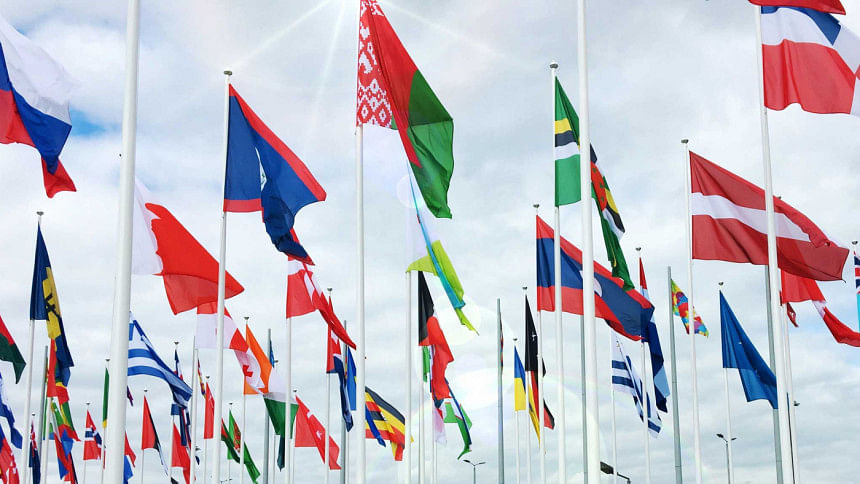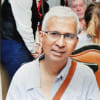Time for another non-aligned movement?

I was watching the BBC during the US' 2003 Iraq invasion when one statement especially caught my attention. "Saddam loyalists are still putting up stiff resistance across Baghdad." Anyone fighting a foreign invasion was labelled as a "Saddam loyalist." It echoed President George W Bush's previous declaration, "You are either with us, or with the terrorists," to intimidate the Taliban of Afghanistan in handing over Osama Bin Laden, the mastermind behind the 9/11 carnage. The Taliban leadership did offer Bin Laden to any third country, but Bush turned it down. Countries that intended to remain neutral had no option but to kowtow to American and Nato's lines as the world no longer had a balancing power after the fall of the Soviet Union in 1991.
The Cold War supposedly ended after the Soviet Union collapsed in 1991. Mikhail Gorbachev, Boris Yeltsin, and many other leaders in the former Warsaw Treaty member countries enjoyed warm relations with the US and other Western nations. The world became a unipolar planet, and everyone thought humanity had entered a new era.
But two US invasions shattered the flimsy facade of any image of the end of history: Afghanistan in 2001, and Iraq in 2003, with Pakistan and Saudi Arabia as the launching bases, both of which are well-known for their support of international terrorism and militancy.
The post-Cold War world has witnessed three main areas of global power rebalancing: a) Expansion of Nato in Eastern Europe; b) Rise of China as an economic and military power; and c) Re-emergence of Russia as a military power under Vladimir Putin. The US has so far engaged China on economic and technological fronts only, although military confrontation has always remained a possibility. But with Russia, the confrontation has remained military, as Nato kept expanding right up to Moscow's backyards along Russia's western borders. What we are witnessing in Ukraine is the last scene of the play, in which an American-trained and equipped Ukrainian army—in the likely presence of British and American military advisers—are fighting a battle against the Russians. It's an American proxy war against Russia that neither can afford to lose.
But the irony of the war is not lost on the developing countries of the world. The US, along with Nato, invaded Afghanistan and Iraq on extremely flimsy and questionable grounds. Neither of these victim countries could launch any direct attack on American interest, and both lie many thousand kilometres from American borders. After years of misadventure, the invading troops left both countries in tatters, opening rooms for many militant factions to fight out their differences.
For Russia, the war was perhaps inevitable. Imagine how the US will react if a Chinese or Russian military adviser turns up in Mexico. A look at the 1962 Cuban missile crisis, when Soviet Union installed missiles on Cuban soil that could hit the US, should leave us in no doubt that Washington would retaliate with nuclear weapons if required. Nato expansion up to the Russian borders couldn't be a goodwill gesture towards Moscow. All these new Nato member countries can and have allowed American arms and troops on their grounds with The Kremlin within their easy reach. Russia, a country with a huge military arsenal and a long history of warfare, was destined to act. And it did.
But where does that leave the rest of the countries who have no military interest, nothing to gain and only to lose from this superpower war? The upward prices of oil have affected everything, including basic supplies such as food grain. When many countries were hoping to restart their economies following the Covid-19 fallout, the Ukraine war shattered any such prospect.
The World Bank has warned of slower growth and increased poverty in most countries. The war has triggered high commodity prices because of stronger US dollar, increased transport cost, and supply chain disruptions. Wheat from Russia and Ukraine that feed millions in the developing countries will not be available anymore, because of the sanctions on Russia and production and shipping issues in Ukraine. Tourism, the major income earner for many countries such as Sri Lanka, will take a tremendous hit. Soaring prices for oil and wheat alone will severely hamper growth in many developing countries. All oil-importing countries, including China, Indonesia, South Africa, India, and Turkey, will have to spend a lot more on energy. The global economic growth will slow down significantly. Millions will slide down into further poverty and struggle for mere survival. The situation is like that during World War II between two groups of colonial powers, when millions perished in the colonies. In Bengal, a province under British India, the number of deaths from starvation in 1943 due to British war policies ran into several millions, and none of them had anything to do with either of the warring parties.
Should the developing nations have to pick a side in such a conflict when neither party is looking after their interests? The world needs a new non-aligned movement, as it did after the first Cold War, so that the developing nations can take a neutral stance.
Dr Sayeed Ahmed is a consulting engineer and the CEO of Bayside Analytix, a technology-focused strategy and management consulting organisation.

 For all latest news, follow The Daily Star's Google News channel.
For all latest news, follow The Daily Star's Google News channel. 



Comments